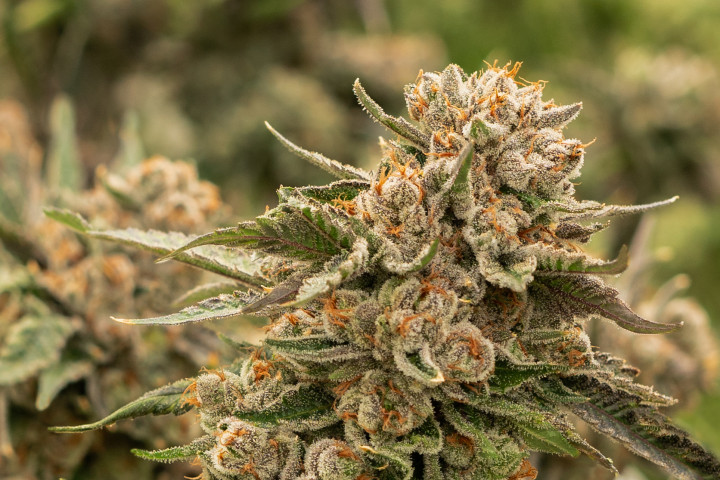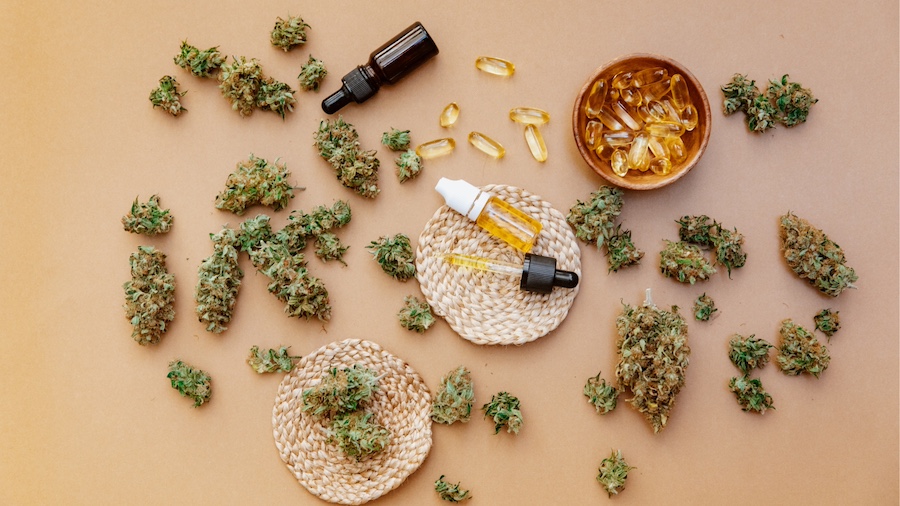How To Use Cannabis For Anxiety Safely & Effectively
Anxiety disorders affect millions of people worldwide, making everyday life overwhelming. While traditional treatments like therapy and medication help many, others seek natural alternatives.
Cannabis has emerged as a promising option, with users reporting relief from symptoms. But does cannabis truly help with anxiety? And if so, how should it be used responsibly?
Understanding Anxiety
Anxiety is a natural human response to stress. It's that flutter in your stomach before a big presentation or the worry you feel about a loved one. However, when anxiety becomes persistent, excessive, and interferes with daily life, it may be classified as an anxiety disorder. Common anxiety disorders include:
- Generalized Anxiety Disorder (GAD)- Persistent worry about various aspects of life.
- Panic Disorder- Sudden, intense episodes of fear accompanied by physical symptoms like heart palpitations.
- Social Anxiety Disorder- Fear of social situations leading to avoidance behaviors.
Anxiety disorders are complex, involving a complex interplay of neurochemicals and brain circuits. While current treatments like therapy and medication can be effective, they don't work for everyone, leading to a search for other options.
The Science Behind Cannabis And Anxiety
The potential of cannabis for anxiety lies in its interaction with the body's endocannabinoid system (ECS). The ECS is a complex network of receptors and neurotransmitters involved in regulating various functions, including mood, stress response, and pain perception.
Cannabis contains cannabinoids, like THC (tetrahydrocannabinol) and CBD (cannabidiol), which interact with the ECS. THC is the psychoactive compound responsible for the "high," while CBD is non-intoxicating. These cannabinoids, along with terpenes (aromatic compounds found in cannabis), can influence neurotransmitter systems like serotonin and GABA, which play crucial roles in anxiety regulation.
It's believed that cannabis may reduce anxiety by modulating activity in the amygdala, the brain's fear center, and other brain regions involved in emotional processing. The synergistic interaction of cannabinoids and terpenes, known as the "entourage effect," may also contribute to the therapeutic potential of cannabis. For a deeper understanding, the history of Cannabisand its traditional uses can provide further context.
CBD Vs. THC For Anxiety - Which Works Best?
Choosing between CBD and THCdepends on how your body responds to cannabis:
- CBD-dominant products– Ideal for anxiety relief without intoxication. Helps with stress reduction, relaxation, and sleep.
- THC-dominant products– May help with relaxation but can cause paranoia or increased heart rate in some users.
- Balanced THC/CBD strains– Offer both calming effects and mild euphoria without overwhelming psychoactive effects.
For anxiety relief, CBD is generally preferred, while low doses of THC may also be beneficial for some individuals.
Best Cannabis Strains For Anxiety Relief
Not all cannabis strains have the same effects. Some are energizing, while others promote deep relaxation. The best strains for anxiety include:
1. Granddaddy Purple (Indica)
- High in myrcene, a terpene known for its sedative properties.
- Promotes deep relaxation and reduces stress.
2. ACDC (CBD-Dominant Hybrid)
- High CBD-to-THC ratio, meaning little to no psychoactive effects.
- Provides anxiety relief while maintaining mental clarity.
3. Harlequin (CBD-Dominant Hybrid)
- Balanced CBD/THC ratio for relaxation without intoxication.
- Helps with social anxiety and general stress.
4. Blue Dream (Hybrid)
- Balanced effects that relax the mind without causing sedation.
- Great for reducing stress while staying functional.
5. Jack Herer (Sativa-Dominant)
- Energizing yet not overwhelming.
- Ideal for daytime anxiety relief and focus.
Choosing The Right Cannabis Strain For Anxiety
The ratio of THC to CBD is a more critical factor to consider for anxiety. Higher CBD ratios are often preferred, as CBD can counteract some of the anxiety-inducing effects of THC. Some strains that are commonly reported as potentially helpful for anxiety include those high in CBD, but individual responses can vary significantly.
To choose the right cannabis strain, it's crucial to start with low doses and gradually increase until you find what works best for you. Consulting with a healthcare professional or experienced cannabis expert is highly recommended.
Methods Of Cannabis Consumption For Anxiety
There are various ways to consume cannabis, each with its own pros and cons.
- Smoking:Involves inhaling cannabis smoke. It offers rapid onset of effects but carries potential respiratory risks.
- Vaping:Heats cannabis, producing a vapor that is inhaled. May be less harmful than smoking, but long-term effects are still being studied.
- Edibles:Cannabis-infused foods. Effects are delayed and can be more intense and unpredictable.
- Tinctures:Liquid extracts placed under the tongue. Offer relatively quick absorption and precise dosing.
- Topicals:Creams or lotions applied to the skin. Primarily used for localized pain or inflammation, unlikely to provide significant relief from generalized anxiety.
The best method for anxiety depends on individual preferences and needs. Many find that tinctures or vapes offer a good balance of relatively quick onset and manageable effects. Microdosing, which involves taking very low doses of cannabis, is another approach some explore for managing anxiety with minimal psychoactive effects.
Potential Risks And Side Effects Of Cannabis
While cannabis shows promise for anxiety, it's not without potential risks and side effects.
- THC-related effects:At higher doses, THC can induce anxiety, paranoia, and impaired cognitive function.
- Long-term use:Potential risks of long-term cannabis use, particularly in adolescents and individuals with pre-existing mental health conditions, are still being researched.
- Drug interactions:Cannabis can interact with other medications, so it's essential to inform your healthcare provider about any cannabis use.
- Dependence:Regular cannabis use can lead to dependence and withdrawal symptoms.
Responsible use and consultation with a healthcare professional are crucial to minimize these risks.
Integrating Cannabis Into An Anxiety Management Plan
Cannabis should not be considered a standalone treatment for anxiety. It's most effective when integrated into a comprehensive anxiety managementplan that includes other therapies, like cognitive behavioral therapy (CBT), mindfulness practices, regular exercise, and a healthy lifestyle.
If you're considering using cannabis for anxiety, it's vital to consult with a healthcare professional who can assess your individual needs and provide guidance on safe and effective use. Understanding the nuances of the cannabis industry, from strain selection to legal considerations, is also important. Keeping a journal to track your experiences with different strains, dosages, and methods can also be helpful.
Legal And Accessibility Considerations
Cannabis laws vary widely across regions. In some areas, cannabis is legally available for both medical and recreational use, while in others, strict regulations apply.
- Medical Use:Some states/countries allow cannabis for anxiety with a doctor’s prescription.
- Recreational Use:Legal in various places but may have THC restrictions.
- Hemp-derived CBD:Legal in most regions, provided it contains less than 0.3% THC.
It’s essential to check local laws before purchasing or using cannabis products.
FAQs
How Do I Permanently Beat Anxiety?
Some ways to manage anxiety disorders include learning about anxiety, mindfulness, relaxation techniques, correct breathing techniques, dietary adjustments, exercise, learning to be assertive, building self-esteem, cognitive therapy, exposure therapy, structured problem solving, medication and support groups.
What Is The Strongest Herb For Anxiety?
In some studies, people who used valerian reported less anxiety and stress.
How Much Cannabis Should I Take For Anxiety?
A 2019 study investigating CBD for anxiety found that 300 to 600 milligrams reduced anxiety symptoms. However, that study was limited to 57 adult males. "For generalized anxiety or sleep disorders, 25 to 75 milligrams per day is recommended, while for PTSD, 33 to 50 milligrams per day is recommended.
Can I Use Cannabis For Anxiety If I Am Taking Other Medications?
Cannabis can interact with other medications. It's crucial to consult with your doctor or pharmacist before using cannabis if you are taking other medications.
Are There Any Natural Alternatives To Cannabis For Anxiety?
Yes, alternatives include meditation, exercise, herbal supplements (e.g., ashwagandha, valerian root), and therapy.
Final Thoughts
Cannabis has shown promise in helping individuals manage anxiety, particularly when using CBD-rich strains or balanced THC-CBD products. However, its effects vary from person to person, and it is essential to approach cannabis use cautiously.
If considering cannabis for anxiety, consulting with a medical professional, starting with a low dose, and selecting the right strain can make a significant difference in achieving effective relief.


